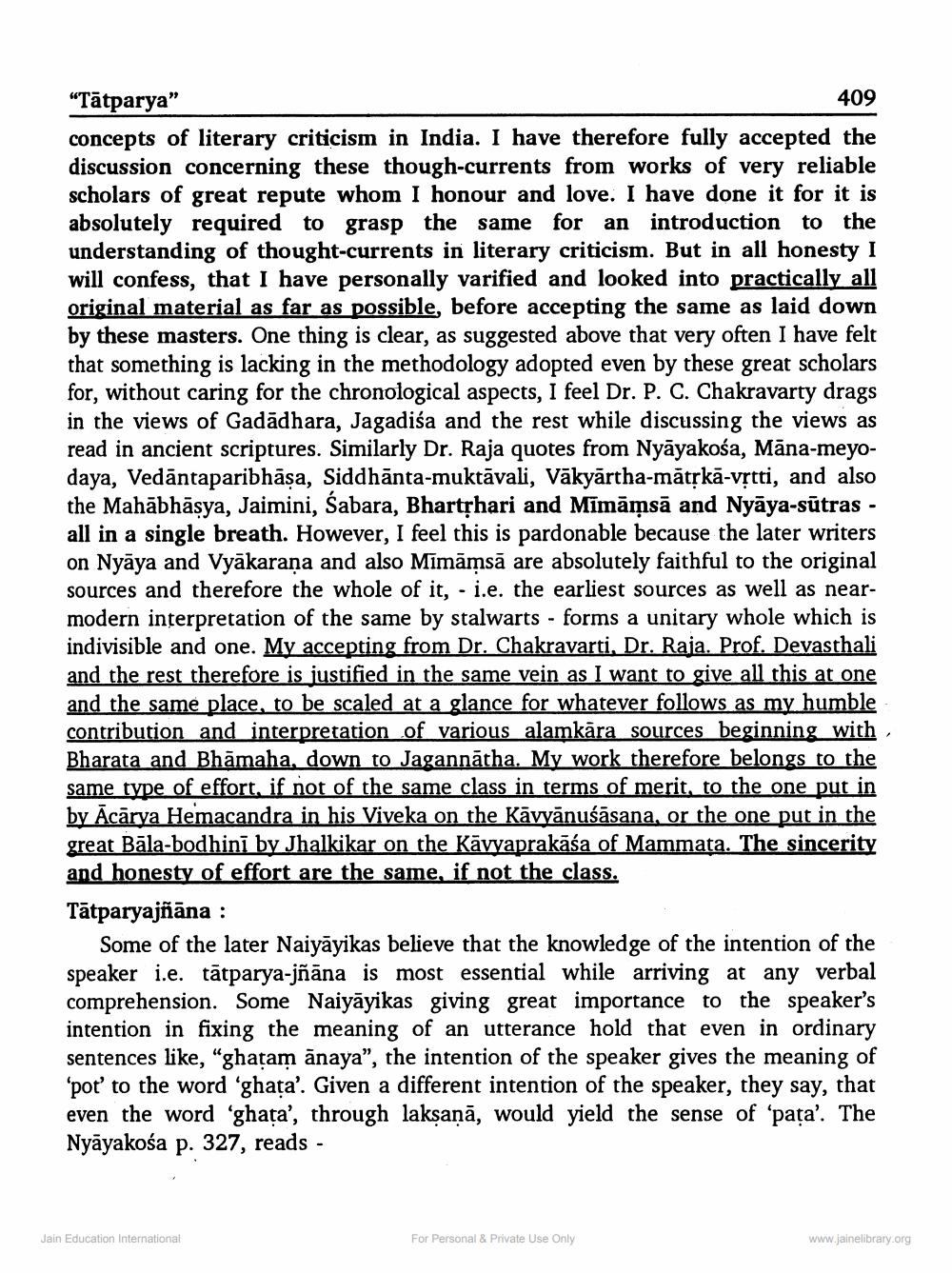________________
"Tātparya"
409
concepts of literary criticism in India. I have therefore fully accepted the discussion concerning these though-currents from works of very reliable scholars of great repute whom I honour and love. I have done it for it is absolutely required to grasp the same for an introduction to the understanding of thought-currents in literary criticism. But in all honesty I will confess, that I have personally varified and looked into practically all original material as far as possible, before accepting the same as laid down by these masters. One thing is clear, as suggested above that very often I have felt that something is lacking in the methodology adopted even by these great scholars for, without caring for the chronological aspects, I feel Dr. P. C. Chakravarty drags in the views of Gadadhara, Jagadiśa and the rest while discussing the views as read in ancient scriptures. Similarly Dr. Raja quotes from Nyāyakośa, Māna-meyodaya, Vedāntaparibhāṣa, Siddhānta-muktāvali, Vākyārtha-mātṛkā-vṛtti, and also the Mahabhāṣya, Jaimini, Śabara, Bhartṛhari and Mīmāmsā and Nyāya-sūtras all in a single breath. However, I feel this is pardonable because the later writers on Nyāya and Vyakaraṇa and also Mimāmsă are absolutely faithful to the original sources and therefore the whole of it, i.e. the earliest sources as well as nearmodern interpretation of the same by stalwarts - forms a unitary whole which is indivisible and one. My accepting from Dr. Chakravarti, Dr. Raja. Prof. Devasthali and the rest therefore is justified in the same vein as I want to give all this at one and the same place, to be scaled at a glance for whatever follows as my humble contribution and interpretation of various alamkāra sources beginning with Bharata and Bhāmaha, down to Jagannatha. My work therefore belongs to the same type of effort, if not of the same class in terms of merit, to the one put in by Acarya Hemacandra in his Viveka on the Kāvyānuśāsana, or the one put in the great Bala-bodhini by Jhalkikar on the Kavyaprakāśa of Mammata. The sincerity and honesty of effort are the same, if not the class.
-
Jain Education International
Tātparyajñāna:
Some of the later Naiyāyikas believe that the knowledge of the intention of the speaker i.e. tātparya-jñāna is most essential while arriving at any verbal comprehension. Some Naiyāyikas giving great importance to the speaker's intention in fixing the meaning of an utterance hold that even in ordinary sentences like, "ghaṭam ānaya”, the intention of the speaker gives the meaning of 'pot' to the word 'ghata'. Given a different intention of the speaker, they say, that even the word 'ghata', through lakṣaṇā, would yield the sense of 'pata'. The Nyāyakośa p. 327, reads -
·
For Personal & Private Use Only
www.jainelibrary.org




